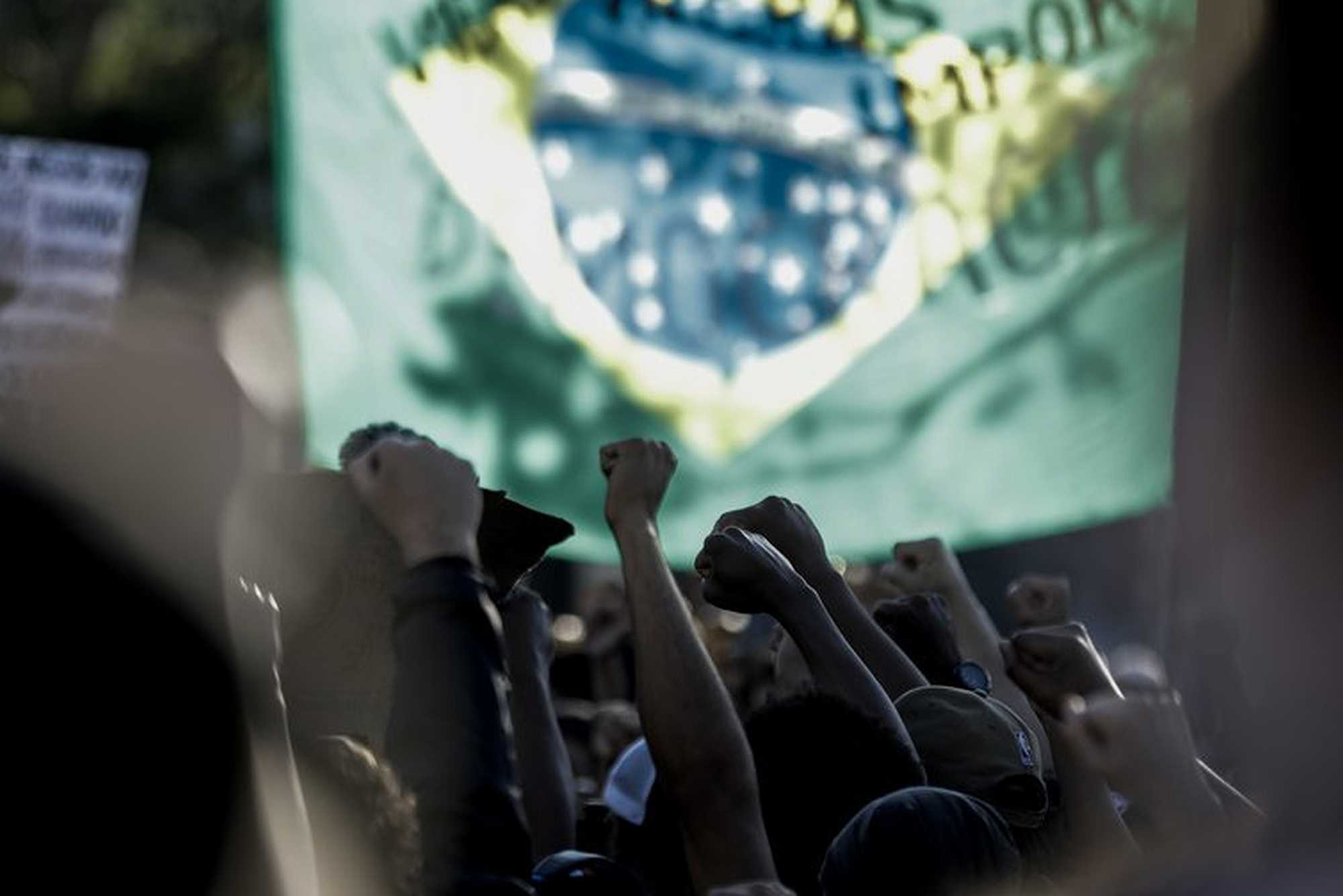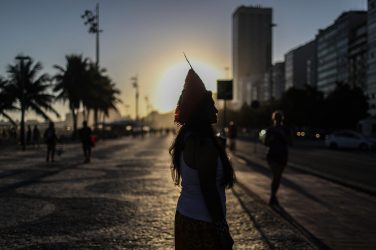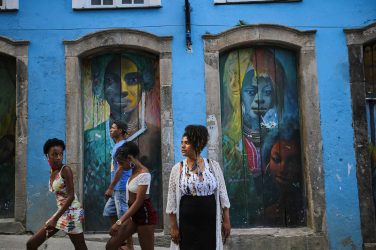In 1695, Zumbi – a warrior and leader of former Black slaves – was captured in his last hiding place between the mountains of Barriga and Dois Irmãos, in Northeastern Brazil. For a year and a half, he survived in the bush, fleeing the Bandeirantes – led by Domingo Jorge Velho – who destroyed Quilombo dos Palmares, the largest of colonial Brazil.
On November 20, Zumbi dos Palmares, 40, was decapitated by captain André Mendonça de Furtado and his head displayed on a spike. Zumbi was tortured and killed for liberating himself from enslavement and protecting those who had done the same.
As a result of his violence and persecution, Domingo Jorge Velho received “a vast amount of land” to intensify the settlement of the region with the help of his associates. His “services” earned him the rank of “Master of the Field”.
For his part, Captain Furtado de Mendonça received a prize of 50,000 réis, equivalent to 70 grams of gold at the time, from none other than Dom Pedro II of Portugal and the Algarve, or “The Pacific”, as the king was also known.
In the late 20th century, the day of the brutal assassination of the Black leader gained national recognition as Black Awareness Day. Exactly 325 years have passed since Zumbi’s decapitation, but the Brazil that sentenced him to death remains the same.
In 2020, late on Thursday, on the eve of the holiday that celebrates the worth and contribution of Black people to the country, João Alberto Silveira Freitas was beaten to death by two security guards in a Carrefour store in Porto Alegre, capital of Rio Grande do Sul state, an event recorded by several cellphones and shared on social media. Like Zumbi, João Alberto Silveira Freitas was a 40-year-old Black man.
More than three centuries after Zumbi’s death, justifying brutal deaths of Black people is still commonplace. Just a few hours after the murder of João Alberto, known as Beto, apologists were already at it, armed with information released by the police that João Alberto had a criminal record for domestic violence.
In an op-ed, columnist Rodrigo Constantino argued that the media coverage of João Alberto’s death was nothing more than “supreme opportunism”, stating that the man was killed not because he was Black, but because he was “huge”.
In Constantino’s opinion, the media is looking for “a Brazilian George Floyd to instigate racial segregation in the mestizo country”.
The arguments made by the columnist are as old as the persecution of Zumbi dos Palmares. The criminal record of Black people who are victims of murder, especially when it involves police or security forces, is among the first angles reported by the media following such events.
In the aftermath of the death of Trayvon Martin, a 17-year-old shot dead by a neighborhood watch volunteer in Florida in 2012, Fox News criticized the victim’s clothing choices. In a similar vein, The Miami Herald felt the need to rummage through his school records and report on his suspensions.
In the case of Tamir Rice, a 12-year-old Black child killed by the police while carrying a toy gun in Ohio in 2014, prosecutors often mentioned the boy’s size. “Tamir was big for his age – 5-foot-7 and 175 pounds, with a men’s XL jacket and size-36 pants – and could have easily passed for someone much older”, said one, as The Los Angeles Times reported at the time.
Turning the victim into the perpetrator is a common – and unfortunately effective – weapon that allows the State to continue the genocide against Brazil’s Black population, a tactic used since the persecution of the quilombolas.
The word genocide is often used in the context of the indiscriminate killings of Black people in Brazil. While the term seems radical to many, it is not unfounded. In 2018, more than 75% of murder victims in Brazil were Black. Between 2008 and 2018, the homicide rate for all Brazilians fell by almost 13%, except for Blacks, which grew by 11.5%.
In the face of statistics and evidence, denying racism in Brazil becomes a Homeric mission. The State and its police forces will continue to try, but the Black community has been gaining ground in the public spaces historically denied to them.
Early on Friday, a group of demonstrators went to the same Carrefour store to protest the death of João Alberto, an act that was repeated in other Carrefour stores across the country. Several protests are also set to take place in different cities.
Through its press office, Carrefour characterized the death as “brutal” and announced it would terminate the contract with the outsourced security company responsible for the two security guards. The company also announced it has fired the manager who was on duty when the event took place.
Carrefour’s statement symbolizes the same non-response that we see over and over again. In February of last year, Pedro Henrique de Oliveira Gonzaga, a 19-year-old Black man, was strangled by a security guard at an Extra supermarket in Rio de Janeiro.
A few months later, in July, another young Black man, this time aged 17, was tortured after he attempted to steal chocolate bars from a Ricoy supermarket in São Paulo. The recyclable material collector was stripped, gagged and whipped, recreating a picture whose historical irony is absurd.
In both cases, the supermarkets said, unsurprisingly, that the security guards were employed by an outsourced company and promised to terminate their contract. In other words, it wasn’t their fault.
In Brazil, finding a break between murders to celebrate the contributions of Black people is an arduous task. This year, Black Awareness Day will not be marked by celebration, but by mourning, which can’t last long.
Blacks and allies will go out to protest and do what they have been doing since 1538, when Jorge Lopes Bixorda trafficked the first Blacks to Bahia: fight for the right to exist.
Manuella Libardi is a Brazilian journalist and the Brazil editor for democraciaAbierta. She holds a Masters degree in International Relations. Twitter: @ManuellaLibardi
This article appeared originally in Open Democracy –https://www.opendemocracy.net/














